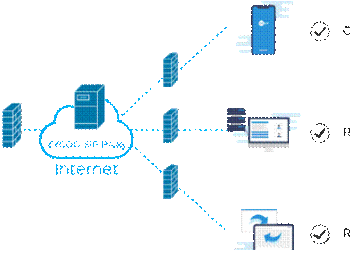Planning an event might look glamorous from the outside with the bright lights, happy guests, and smooth presentations. But behind every successful event lies a lot of preparation, coordination, and problem-solving.
Managing an event comes with its fair share of challenges, regardless of whether it’s a business conference, product launch, or team-building retreat.
From dealing with budget constraints to handling last-minute changes, event organisers often find themselves juggling multiple responsibilities at once. This is where the experience and structure brought by a professional event planner or conference event planner can make all the difference.
Today, with this blog, we’ll explore ten of the most common challenges faced during event planning and share practical ways to overcome them. These insights can help make your next event smoother and more successful, whether you’re planning your first event or managing regular functions for your company.
10 Common Hurdles In Event Management And How to Overcome Them
Planning an event is about juggling many moving parts and making sure everything comes together on time. Even the most seasoned organisers face unexpected issues.
Let’s look at some of the most common hurdles and how to tackle them with confidence.
1. Budget Constraints
Managing costs is one of the biggest hurdles in event planning. It’s easy to underestimate how much certain things will cost, and unexpected expenses can quickly throw your budget off track.
You can overcome this problem by creating a detailed budget at the start. Include every item you can think of, like venue hire, food, entertainment, staff, marketing and allow a buffer for last-minute costs. A professional event planner will know how to stretch your budget without compromising quality, thanks to their industry contacts and negotiation skills.
2. Time Management
When planning events, time always feels short. Balancing venue bookings, invitations, vendor coordination, and everything else can be overwhelming.
You can create a clear timeline from day one. Break tasks into smaller milestones and set realistic deadlines. A conference event planner can take control of the schedule and keep everyone on track, ensuring nothing falls through the cracks.
3. Venue Selection and Logistics
Finding the right venue isn’t just about looks but also about accessibility, facilities, and logistics. A venue that’s too small, poorly located, or lacking technical support can create big problems.
So, start your venue search early. Think about transport, parking, Wi-Fi, lighting, and accessibility. Visit the venue if you can. A professional event planner can recommend suitable options and handle all the background coordination, from site inspections to layout planning.
4. Vendor Coordination
You’ll need multiple vendors to deliver a great event, like caterers, decorators, audio-visual teams, security, and more. But coordinating them all can be a challenge.
Thus, set clear expectations early on. Get everything in writing, including timelines, costs, and responsibilities. Check in with vendors regularly. A conference event planner has experience managing supplier relationships and can ensure everything stays on schedule.
5. Attendee Engagement
It’s not enough to simply gather people in a room. You need to keep them interested and involved throughout the event.
Build in time for interaction. Use tools like live polls, breakout sessions, games, or networking zones. A professional event planner will help shape a schedule that keeps the energy high and your guests engaged.
6. Technical Difficulties
Technology can elevate an event or completely disrupt it. Problems with sound, video, or the internet can create embarrassing interruptions.
So, it is best to test everything well before the event starts. Make sure you have technical support on-site and backup equipment ready. A conference event planner can oversee rehearsals and work closely with AV teams to minimise the chance of issues on the day.
7. Risk Management and Safety
Unexpected issues can arise, such as medical emergencies, weather changes, or security concerns. Being unprepared puts everyone at risk.
So, it is important to always have a risk management plan. Consider possible emergencies and how you’ll respond. Make sure you have trained staff and clear communication. A professional event planner is experienced in managing safety protocols and will put the right measures in place from the beginning.
8. Regulatory Compliance
Every event needs to meet legal requirements, from permits and licences to insurance and safety standards. Missing a step here can lead to cancellations or fines.
Understand your legal responsibilities early in the planning process. Apply for any permits and make sure you follow health and safety rules. A conference event planner can guide you through compliance and help you avoid any legal surprises.
9. Sustainability and Environmental Concerns
Many businesses are now looking to reduce the environmental impact of their events, but it can be hard to know where to start.
To overcome this hurdle, you can choose sustainable materials, digital invites, reusable décor, and local suppliers. Provide recycling options and avoid unnecessary waste. A professional event planner can help you build an eco-conscious strategy that fits your brand and your budget.
10. Post-Event Evaluation
After the event ends, it’s easy to move on to the next thing. But reviewing how your event performed is key to learning and improving.
You can send out surveys, gather feedback, and analyse what worked and what didn’t. A conference event planner can prepare a detailed event report, helping you track ROI and improve future planning.
Final Thoughts
Planning an event is a rewarding yet demanding task. It requires creativity, the ability to solve problems on the spot and attention to detail. Every event comes with its own set of challenges, but being prepared makes all the difference.
Having a solid strategy (and the right support) will help you succeed, regardless of whether you’re organising a corporate function, a team retreat, or a large-scale conference.
When you address these common challenges early on, you’ll reduce the risk of issues on the day and create an enjoyable experience for everyone involved.
If you’re feeling overwhelmed or simply want the peace of mind that comes from working with an expert, partnering with a professional event planner or conference event planner could be the best decision you make.
Their knowledge, contacts, and hands-on approach can turn a stressful task into a smooth process and help your event shine.




![7 Best POS Software in the UK [2026 Edition]](https://todaynews.co.uk/wp-content/uploads/2026/02/7-Best-POS-Software-in-the-UK-2026-Edition-360x180.png)






































































